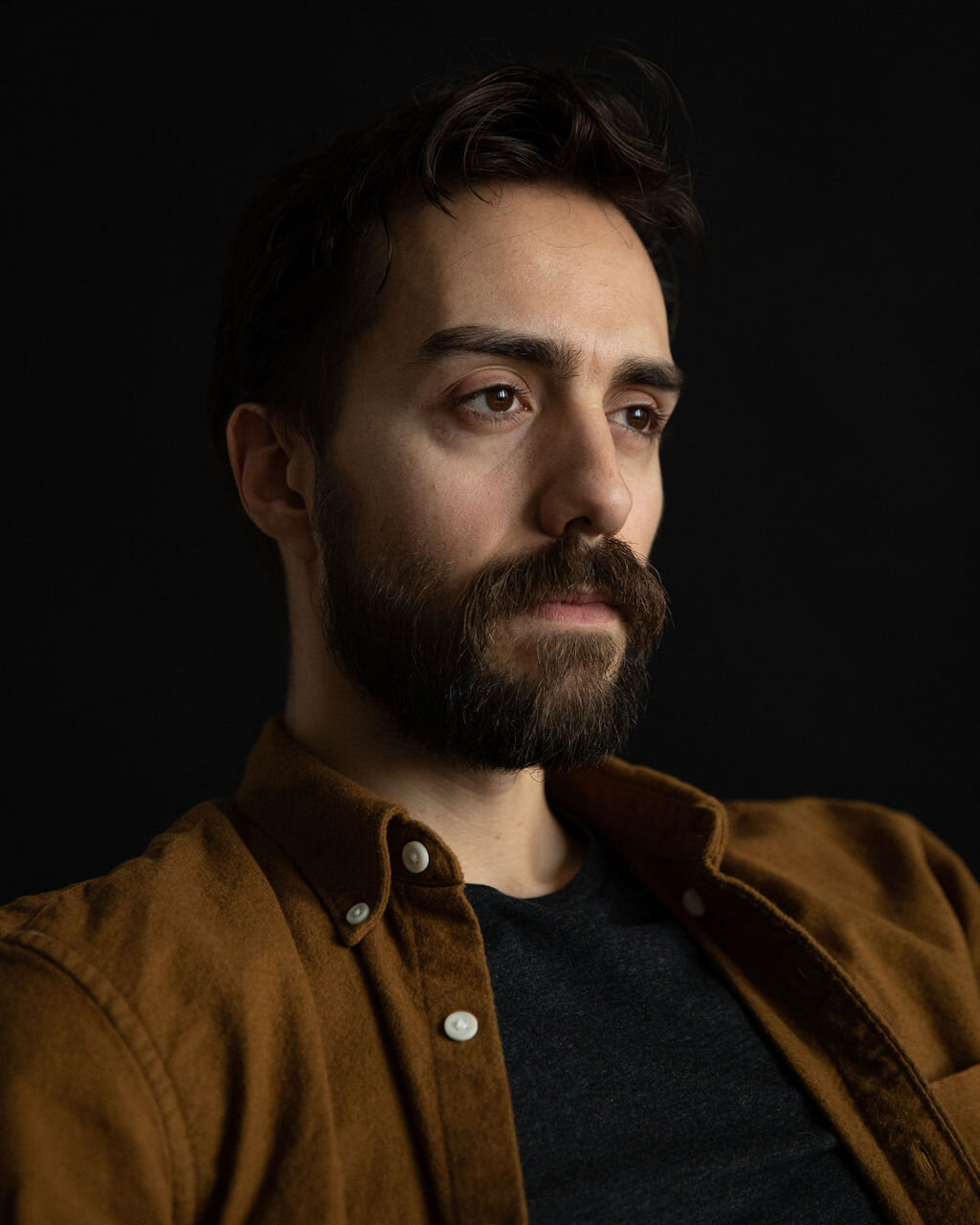How to Smell – a guide for living through your senses
by Joshua Smith
My name is Joshua Smith and I run an artisan perfume house in Canada, Libertine Fragrance.
I think a lot about scent. How it affects us, and what it can provide us. Along with the pleasure of breathing in a bouquet or the mix of aromas that precede a thoughtfully cooked meal, scent, offers a template. Through learning to deeply appreciate scent, we can bring the same sense of appreciation to all of our senses and to our lives.
Why scent?
Though scent is often seen as the least critical in our array of senses, we do use scent to help navigate the world. To warn us of danger or detect opportunity (usually in evaluating food) but of all the senses, humans' sense of smell is relatively undeveloped. We tend to rely on sight and sound much more for situating ourselves. Regarding taste, the sibling sense of smell, we have a much more thoroughly developed understanding of the sense and much more nauce in what we understand. In fact taste, touch and sound all have large vocabularies of words to help with describing our experiences but ( in the english language anyway, there are a number of cultures with significantly more developed scent cultures) scent has relatively few specific words. We may describe a scent as sour or sweet but going deeper than that usually relies on an association, usually from the food world. We know the sweet smell of vanilla bean to be similar but with differences from that of caramel or white sugar but to really describe the difference we rely on terms from other senses. Vanilla beans may be “darker” or “ stickier” smelling than white sugar, both terms being borrowed from other senses.
It is for this reason that scent is a great entry point into exploring the nuances in our senses. Without proper terminology to worry about there is no getting it wrong. The world of wine or gastronomy both have a wealth of sensation we can explore, savour and appreciate deeply but the practice of tasting in those worlds have established techniques, terminology and a whole culture that can feel unfortunately inaccessible to many people.
For me, purposefully smelling & developing this sense is a sort of meditation. It is a practice that requires presence in the moment and an unhurried approach. Taking the time to sit and explore this sense is practice to be present with all of my senses. It is an incredibly subtle and slow process and a perfect foil for the pace of everyday life. In the beginning when I sit to do it I can feel my mind panic. Calibrated to the constant buzz and chatter of a life online, the slowness is frustrating. Once I start to get into the work of it I feel so engaged and am fully present not just in my mind but in my body, as well. For me this practice is a sort of meditation for my physical body.
How to smell (with your nose)
Smelling purposefully requires a soft and intentional focus. As presence is required it is best to remove distraction. For some people even sounds can cause too much distraction so they may turn any music off or pick music without lyrics. The nose itself needs to remain undistracted so do this in a space that has relatively few other ambient scents like cooking, candles, etc...
Once you have settled in and are ready to smell, take the item, let's say we are smelling a rose.
Bring the rose near your face and take short, purposeful inhalations mainly with your mouth slightly open. Taking long deep draws of air in tends to tire out the nose faster and you can usually get a sense of things with a few short breaths. Smelling purposefully is surprisingly tiring. It is best to do it in short sessions when your nose is fresh. This is especially true if you are smelling essential oils or other perfume ingredients which can be quite strong. Breathing in coffee beans or other things does not help to “reset” the nose, it simply tires it out faster. Try slow deep breaths away from anything or in the crook of your elbow instead.
How to smell (with your being)
The real work of it all comes in questioning and exploring what you are experiencing. There is an art to being open and relaxed while being investigative. Just try to work through the questioning in an open and relaxed way. To fully explore a scent you will ask yourself a series of questions in three layers, scent, association & emotion.
Once you have taken a few sniffs to get a general sense of what you are smelling you can begin to work through these questions. First you will evaluate the associations of the scent. I usually frame my questions around some of the other senses as described earlier, below are just a few to prime you but anything you notice is useful.
Is this sweet/ sour? Does this scent have a distinct texture? (scents can have a variety of textures, This is one of the easiest ways of differentiating from other smells) Scratchy? Dusty? Smooth? Powdery? Does it feel warm or cool? Does it seem light or dark? Wet or dry? Is it dense, or airy? How powerful is the aroma? Does the scent really hit you or do you have to really try to notice it?
Once you have pinpointed the general qualities, start to try making associations with other things in the world. This can be hard at first, it's a bit like a Rorschach test in that it requires a loose mind to freely associate with things other than the item you are smelling (saying it smells like a rose isn’t very useful). Does it have citrus elements, does it remind you of any other fruits? Florals? Does it remind you of places? Either general or specific?
Finally emotionally I try to think of more specific emotions or memories it may bring up, thoughts of people or places or times in my life. All of these answers will be quite specific to you and we all create different associations but as James Joyce said “in the particular is contained the universal”. We all experience the world differently but our unique experiences are relatable and important.
When you smell something usually these stimuli come rushing in all at once so by trying to slow down and deliberately answering in order it helps to evaluate and explore more deeply. Just like wine or food it is helpful and fun to compare things side by side. You can try similar things, different varieties of a flower, or contrast with different things. What are the similarities you find smelling a rose and then jasmine? Jasmine & daffodil? What are the differences? Comparing can make the qualities of a scent especially noticeable. The aromas we breathe in are usually a complex mixture composed of potentially hundreds of different aromatic molecules. Different plants contain many of the same basic chemicals in them so you may find similar aspects in entirely different plants.
Through practice we can notice a subtle layer to the world that has existed all around us, invisible to our noses. The art of this is not learning the different scented facets of a flower, just like the purpose of meditation is not to be able to sit quietly for a period of time. Those are the pleasant (and sometimes useful) side effects that come from a practice of slow investigation. Through this slow and deliberate practice we find the same world we woke up in yesterday, has become much richer, deeper and worthy of investigating further.
About the author
Joshua Smith is a self taught indie perfumer hailing from the Canadian prairies. His path took him through both forestry and design before he landed in the world of fragrance, starting his own line, Libertine Fragrance in 2015. The line was started mid way through his design degree as a vehicle to explore the relationships & narratives people form with materials and the senses as they traverse through the world.
The choice to start a perfume line was not an apparent one as he himself did not have a deep relationship with perfume or the brands that he had encountered when he began learning the art of perfume making. Rather than a deep appreciation of existing perfumes Libertine was started because of a deep appreciation of scent and the aromatic materials themselves. Much of design is focussed on the visual and tactile senses and it seemed as though there was room to explore the connections relationships with the less utilized senses.
Since Libertine’s inception Joshua has been translating the connections, narratives & memories embedded in our cultures, artworks and our environments into small scented offerings for people to enjoy and explore.
www.libertinefragrance.com
Become an author too
Would you like to contribute to our journal? Are you an expert on a topic related to anything connecting pleasure with sustainablity and good living? Let us know at info@sarah-linda.com. We look forward to hearing from you!



